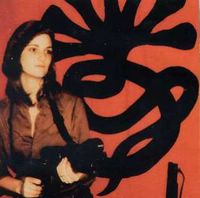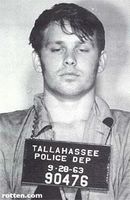All Irony-Deficient, Look No Further
Alanis Morissette might have sung "Ironic," but trust me, she didn't know ironic.
For ironic, of the mind-spinning variety that caused O.Henry characters to screw up Christmas and whatnot, it is worth reading a story from this past Sunday's edition of The New York Times. In a fascinating article, reporters Michael R. Gordon and Bernard E. Trainor outline how Saddam Hussein's chief concern in the days leading up to the Iraq War was a potential Shia uprising, not a U.S. invasion.
Here's a taste:
"Hussein did take some steps to avoid provoking war, though. While diplomatic efforts by France, Germany and Russia were under way to avert war, he rejected proposals to mine the Persian Gulf, fearing that the Bush administration would use such an action as an excuse to strike, the Joint Forces Command study noted.
"In December 2002, he told his top commanders that Iraq did not possess unconventional arms, like nuclear, biological or chemical weapons, according to the Iraq Survey Group, a task force established by the C.I.A. to investigate what happened to Iraq's weapons programs. Mr. Hussein wanted his officers to know they could not rely on poison gas or germ weapons if war broke out. The disclosure that the cupboard was bare ... sent morale plummeting.
"To ensure that Iraq would pass scrutiny by United Nations arms inspectors, Mr. Hussein ordered that they be given the access that they wanted. And he ordered a crash effort to scrub the country so the inspectors would not discover any vestiges of old unconventional weapons, no small concern in a nation that had once amassed an arsenal of chemical weapons, biological agents and Scud missiles, the Iraq survey group report said.
[...]
"Seeking to deter Iran and even enemies at home, the Iraqi dictator's goal was to cooperate with the inspectors while preserving some ambiguity about its unconventional weapons — a strategy General Hamdani, the Republican Guard commander, later dubbed in a television interview 'deterrence by doubt.'
"That strategy led to mutual misperception. When Secretary of State Colin L. Powell addressed the Security Council in February 2003, he offered evidence from photographs and intercepted communications that the Iraqis were rushing to sanitize suspected weapons sites. Mr. Hussein's efforts to remove any residue from old unconventional weapons programs were viewed by the Americans as efforts to hide the weapons. The very steps the Iraqi government was taking to reduce the prospect of war were used against it, increasing the odds of a military confrontation."
The entire story is worth reading.























0 Comments:
Post a Comment
<< Home